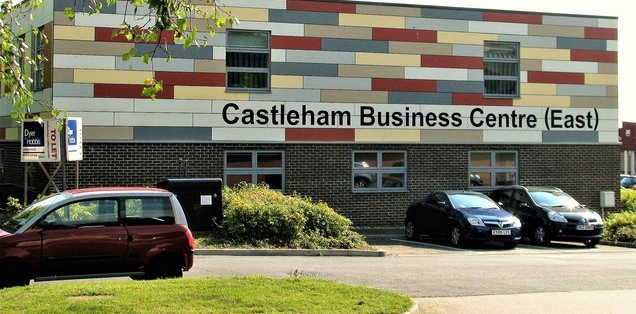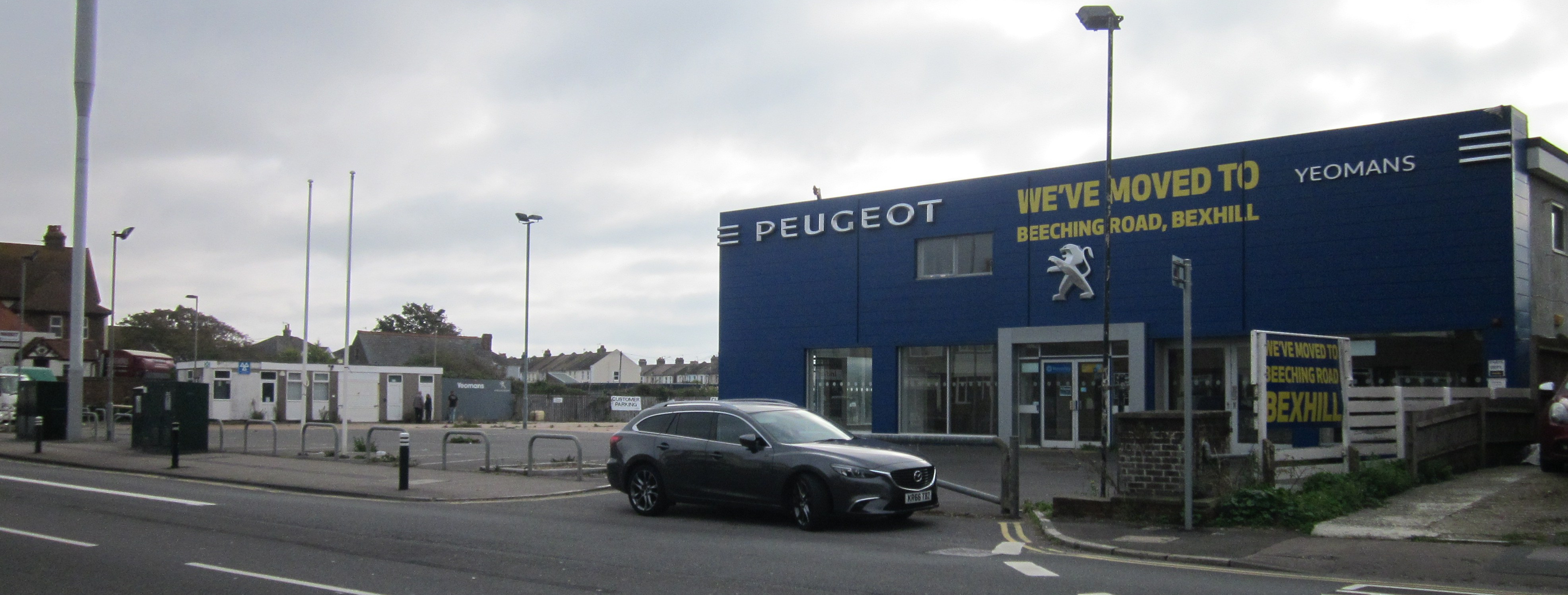Blue chip investment or ticking time bomb? Council invests over £40m in property and that’s just for starters
Prudent planning for the future or reckless behaviour creating a ‘ticking time bomb’ for Hastings Borough Council’s (HBC) finances?
Your council has borrowed more than £40m in your name in the last five years to invest in commercial property – and more is planned. Like everything that happens in politics there is a group of people who think what the council is doing is prudent while in the other corner is a group who believe its actions to be reckless – but who is right and who is wrong and how long will it take to find out which is which?
We spoke to council leader Peter Chowney to find out more about why the council has decided to pursue what some consider to be a risky strategy but he quickly points out that for HBC investment in commercial property is not a recent development.
Castleham, Ponswood and Churchfields industrial estates were all built by Hastings council in the years after the second world war and the town’s council therefore, says Mr Chowney, has a great deal of experience as a commercial landlord dating back several decades.

The worry among HBC’s critics, however, is that the council has ramped up its property investment programme in recent years with more than £40m spent in the last four years with more to come. That money has been borrowed from the Public Works Loans Board (PWLB) and while councils can borrow easily through the PWLB at fixed rates of interest the concern for Rob Lee, who leads the opposition Conservative group on HBC, is that loans on the scale HBC has been taking out, which will be repaid over 40 years are, “a ticking time bomb of over extended borrowing”.
Mr Lee is not alone in his concern that some of HBC’s recent purchases carry a significant financial risk, many of the sites the council has acquired recently are reliant on the health of retail and that sector of the nation’s economy is seriously under pressure as more shopping is done online and even some of the biggest names in retail struggle to make a profit.
And the council’s most recent purchase in Bexhill Road has been seen as particularly controversial.
Last year HBC bought the former Peugeot dealership and one-time Bulverhythe pub on Bexhill Road. The council is now paying to develop that site creating three retail units. One of those units is to be let to supermarket giant Aldi, a second will be let to Greggs with a tenant yet to be secured for the third unit.

The council also owns the Pets at Home and Dunelm site on Sedlescombe Road North as well as the T.K. Maxx and Carpetright site on Bexhill Road.
Mr Chowney concedes the council has probably not done enough to let people know what properties it has been buying up and why it sees commercial property acquisition as a sound policy to pursue. He says there had been a plan to erect signage outside council owned property saying that HBC was the owner and he promised to follow-up with officers why that had not happened.
The logic behind HBC’s decision to increase its commercial property portfolio is linked to the way that government financial support to local authorities has been eroded in the last decade. Mr Chowney says that cumulatively HBC has lost more than £40m since 2010 and the revenue support grant it got from central government which once stood at £10m per year has dropped to nothing. The £740,000 per annum profit that the council generates from its commercial property portfolio is vital to council finances he says.
Critics of HBC’s policy to buy up commercial property are not just from the local community because HBC is not the only authority in the UK to pursue this kind of approach to income generation and that has resulted in close scrutiny of the risks attached at a national level.
The Financial Times looked in depth at the issue in November last year and wrote at the time: “Using cheap financing from the government-backed Public Works Loan Board, local governments are pumping billions in to commercial property with the aim of regenerating local high streets, producing an income, or both. The commercial property market is not renowned for its stability. To put it mildly, there are risks.
“Retail is a volatile and fast changing market, with traditional retail centres struggling and there is a real risk that vacant units won’t be let and that anchor tenants will be lost – then what?”
The Chartered Institute of Public Finance and Accountancy has expressed its concern at the level of borrowing some local authorities have made in order to invest in commercial property and has gone as far as reminding councils that they: “…should avoid exposing public funds to unnecessary or unquantified risk”.
Another national investigation says: “Experts warn that commercial property investments are volatile, and the fact that councils are financing them through borrowing makes them even riskier. If anything goes wrong, the consequences for taxpayers could be severe.”

But Mr Chowney believes what HBC has done has been prudent and the council has spread the risk. The fact the portfolio of properties owned by HBC is significant means, he says, that the council could withstand the loss of a significant tenant. Carpetright, for example, announced a series of store closures last year which worried some members of HBC but council leaders said at the time that Carpetright had conducted a review of all its sites and the Hastings branch was one of its top performing stores. However, HBC’s income from that one store has almost certainly dropped as it was widely reported last year that as part of plans to deal with a £71m loss Carpetright was negotiating with its landlords for rent reductions.
Rob Lee is worried that by spreading the repayment of the loans over a 40 year period HBC is exposed to changes in the economy it cannot possibly predict and that could result in it being simply unable to make the required repayments if things went sour in the retail sector.

Once again Mr Chowney believes the key to success is in HBC’s policy of spreading it’s risk across a number of sectors of the economy. It already owns property used for light industrial uses, it has acquired significant interests in retail property in recent years and shortly it will announce major acquisitions in the commercial sector. Hastings In Focus understands that an announcement will be made shortly confirming that HBC has bought Lacuna Place in the town centre, a building soon to be occupied by the Department for Work and Pensions. We also understand that HBC has its eye on another significant commercial property in London Road.
The council leader explains that local property agents are aware the council has an interest in acquiring property and lets them know what is coming to the market with each opportunity being weighed up carefully before any decision is made, “…we reject a lot that is suggested to us,” says Mr Chowney.
While the final decision on whether to buy rests with the full council, the process the council follows up to that point sees HBC’s Income Generation Board look at each potential acquisition in detail. That board consists of Mr Chowney, the council’s deputy leader Kim Forward and Councillor John Rankin who also chairs the council’s audit committee.

Once the income generation board has decided it thinks a project is worthwhile the matter is then discussed by the council’s cabinet with the recommendation of the cabinet then going before the full council for its ratification.
While Mr Chowney confirms that the council seeks expert advice from external sources to help make its buying decisions he says he does not know the specific details of which experts the council uses, that he says is delegated to the council officers. He does however categorically deny that the council has taken buying advice from selling agents, “that just wouldn’t make sense” he says.
But while Mr Chowney is confident that HBC is taking all necessary steps to ensure its property dealings are sensible and carry minimum levels of risk there remain external voices who have doubts not just about the actions of HBC but of other councils across the UK.
In April last year the government instructed councils to take more care to avoid risk after warnings that demand for retail space was falling and rents stagnating as consumers spend less or shop online. If rents collapse, the government warned that councils may be left with debts that they can repay only by cutting services or raising taxes.
Some property experts believe councils have been the, ‘buyer of last resort’ suggesting that larger property companies have off-loaded some of their underperforming sites to councils that have been too eager to buy: “What they bought would have been overvalued at the time and is far more overvalued now,” said the Chairman of one national property company.
While borrowing is done through the PWLB at preferential rates of interest the criteria applied for approval of loans is ‘relaxed’ and even Mr Chowney admitted that an application to the PWLB for many millions of pounds can be processed within a couple of days.
A government spokesman told Hastings In Focus: “Councils are responsible for managing their own finances and making the right decisions for the communities they serve.”
Whether such significant investments in commercial property has been the right decision for Hastings only time will tell. If it has been the rewards in the medium and long term future could be significant. If, as some fear, it’s been the wrong choice council tax payers will be paying for that mistake for many years to come.
Tell us what you think….
email tellmeyourstory@hastingsinfocus.co.uk




I find it increasingly frustrating when Cllr Rob Lee speaks in opposition to policies taken in order to negate the cuts being inflicted by his own party, without any suggestion of how he would handle the same situation differently.
We know what you don’t want Rob, but how’s about telling us what you’d do?
Firstly what HBC built after WW2 and has let out over seventy years cannot be compared with purchasing millions of pounds of property in 2019……….can it. The total economic climate has changed. Surely one has to be have far more expertise and shrewdness with commercial real estate today.
The other mystery that is now resolved for me is how HBC decides what property it is going to purchase. So Cllr Chowney along with another Labour councillor and another councillor site on this “Income Generation Board” and decide what property looks good to buy. Exactly what do these councillors have experience wise to identify a good deal? The one concern surely is how Cllr Chowney who sits on this “Board” has told the writer of this article how HBC obtains external expert advice but he does not know who they are.
I am really quite staggered by that admission. They get advice but from whom. Where are they ? What do they charge for this advice ?
I think there is still a few more things we need to know about this council property shopping spree
This is all very worrying – recent articles in the national press suggest that councils are delving into transactions that they know little about. Spelthorne council received a slating from KPMG who raised very serious concerns that the council had not followed correct procedures.
It has been reported that Breckland district council in Norfolk has put millions into commercial property without letting taxpayers know what it has bought or for how much. One such project looks to be resulting in a major loss having to sell a golf club for considerably less than the purchase price One has to ponder whether Hastings Council is going down the same route – keeping us all in the dark and according to the article above, seems to know very little about who is advising the council. There are numerous reports coming surfacing regarding councils who are borrowing vast sums and investing in very dubious projects. It remains to be seen if our council is going down this very uncertain route.
There is a Cabinet meeting on 4 February 6pm at Muriel Matters House…Item 13 on the Agenda is listed as “Commercial Property Purchases Part 2” but this item appears to be listed under an “Exclusion of Public” item. Little wonder we know so little about this extensive shopping list until after the deed is done. So much for democracy.